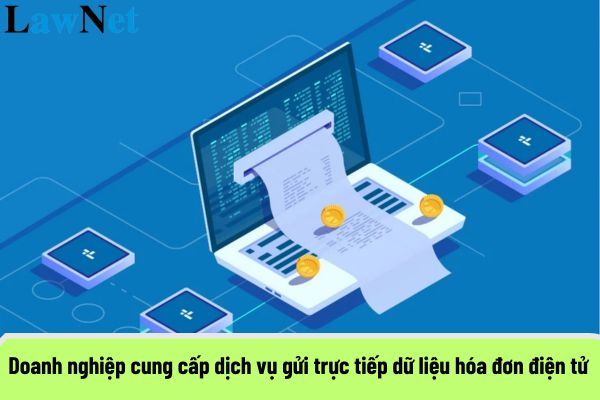What are requirements for service providers directly transmitting data to tax authorities in Vietnam?
What are requirements for service providers directly transmitting data to tax authorities in Vietnam?
Based on Clause 4, Article 12 of Decree 123/2020/ND-CP, the regulations for service providers directly transmitting data to tax authorities must meet the following specific requirements:
E-invoice Format
1. The format of an e-invoice is a technical standard specifying data types and the length of data fields to serve the transmission, storage, and display of e-invoices. The e-invoice format uses XML (eXtensible Markup Language) which is created for sharing electronic data among IT systems.
2. The e-invoice format includes two components: a component containing business data of the e-invoice and a component containing digital signature data. For e-invoices with tax code, an additional component contains data related to the tax authority's code.
3. The General Department of Taxation develops and publishes the components containing e-invoice business data, signature data, and provides tools to display e-invoice contents as per this Decree.
4. Organizations and enterprises selling goods or providing services when transmitting e-invoice data directly to tax authorities must meet the following requirements:
a) Connection to the General Department of Taxation through a dedicated leased line or MPLS VPN Layer 3 channel, including 1 main transmission channel and 1 backup channel. Each channel must have a minimum bandwidth of 5 Mbps.
b) Use Web Service or Message Queue (MQ) with encryption as the method to connect.
c) Use the SOAP protocol to package and transmit data.
5. E-invoices must be displayed fully and accurately to ensure they do not lead to misleading interpretations, allowing the buyer to read them through electronic means.
Thus, according to the regulations, enterprises providing services for direct transmission of e-invoice data to tax authorities must meet the following requirements:
- Connection to the General Department of Taxation through a dedicated leased line or MPLS VPN Layer 3 channel, including 1 main transmission channel and 1 backup channel. Each channel must have a minimum bandwidth of 5 Mbps.
- Use Web Service or Message Queue (MQ) with encryption as the method to connect.
- Use the SOAP protocol to package and transmit data.

When are e-invoices used when providing services in Vietnam?
Based on Article 91 of the Law on Tax Administration 2019, regulations on applying e-invoices when providing services for subjects are as follows:
- Enterprises, and economic organizations use e-invoices with tax authority codes when selling goods or providing services regardless of the value of each transaction, except as stipulated in Clauses 2 and 4, Article 91 Law on Tax Administration 2019.
- Enterprises operating in the fields of electricity, petroleum, postal and telecommunications, clean water, credit finance, insurance, healthcare, e-commerce, supermarket trade, and transportation by air, road, rail, sea, and inland waterways, and other enterprises and economic organizations that have conducted or will carry out electronic transactions with tax authorities, developed IT infrastructure, have accounting software, e-invoice creation software that meets e-invoice creation, lookup, data storage according to regulations, and ensures e-invoice data is transmitted to buyers and tax authorities, may use e-invoices without a tax authority code when selling goods or providing services, regardless of the value of each transaction, except in cases of high tax risk as stipulated by the Minister of Finance and cases of registration to use e-invoices with a tax authority code.
- Business households and individuals specified in Clause 5, Article 51 of the Law on Tax Administration 2019 and other cases where revenue is determinable when selling goods or services using e-invoices with a tax authority code.
- Business households and individuals not meeting conditions to use e-invoices with tax authority codes as required in Clauses 1 and 3, Article 91 of the Law on Tax Administration 2019 but require invoices for delivery to customers or in cases where enterprises, economic organizations, or other organizations are approved by tax authorities to provide e-invoices to customers, then tax authorities will issue e-invoices with codes on a per-transaction basis, requiring tax filing and payment before the issuance of each invoice by the tax authority.
What are the penalties for failing to issue e-invoices for promotional services in Vietnam?
Under point b, Clause 2, Article 24 of Decree 125/2020/ND-CP regulating penalties for failing to issue e-invoices for promotional services:
Penalties for violations on invoicing when selling goods or services
...
2. A fine ranging from 500,000 VND to 1,500,000 VND will be imposed for one of the following acts:
a) Not issuing a collective invoice according to the law on invoicing goods and services.
b) Not issuing invoices for goods and services used for promotions, advertising, samples; goods and services used for gifts, donations, exchanges, wage replacements for employees, excluding internally transferred goods and services for continued production processes.
3. A fine ranging from 3,000,000 VND to 5,000,000 VND for issuing invoices at the incorrect time but not causing delayed tax obligations, except in cases stipulated in point a, Clause 1 of this Article.
...
Thus, according to the above regulations, failing to issue e-invoices for promotional services will result in a fine ranging from 500,000 VND to 1,500,000 VND.
Note: The above-stated penalty is applicable to organizations; for individuals, the fine is 1/2 of the organization’s penalty (Clause 4, Article 7 of Decree 125/2020/ND-CP and Clause 5, Article 5 of Decree 125/2020/ND-CP).

